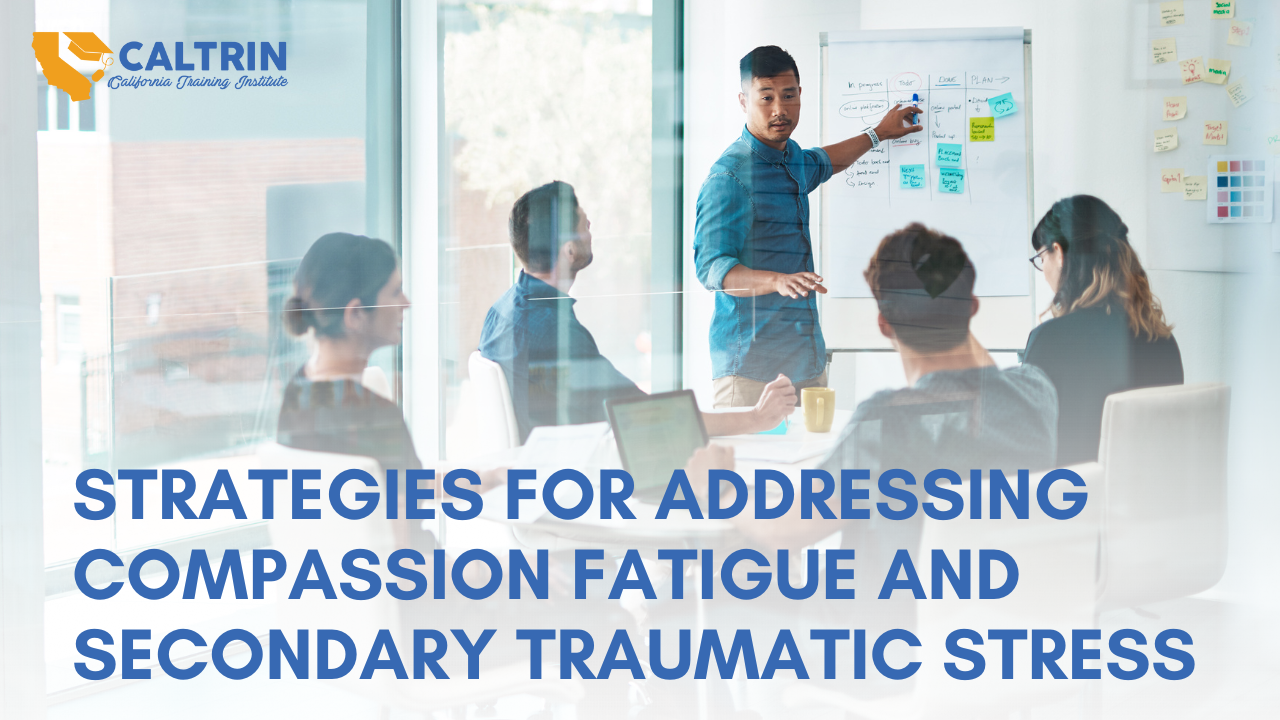- Self-Paced Course
-
Step 1: Complete the Course
-
Step 2: Complete Survey
-
Step 3: Certificate of Completion

Strategies for Addressing Compassion Fatigue and Secondary Traumatic Stress
Strategies to help Supervisors and above address the professional well-being of staff members
This course has been adapted from a CalTrin-hosted webinar: Organizational Strategies: Addressing Compassion Fatigue and Secondary Traumatic Stress, presented by Melissa Bernstein, PhD, March 02, 2021.
This course was developed for California child- and family-serving professionals in leadership roles (leads, supervisors, managers, and above) to address professional well-being through individual and organizational strategies.
Course Learning Objectives:
-
- Review the impact of indirect trauma on helping professionals
- Identify top strategies for managing individual well-being
- Discuss the foundations for Reflective Supervision of staff
Featured Presenter: Melissa Bernstein, PhD, Director of the Advancing California’s Trauma-Informed Systems (ACTS) Project www.actsproject.com
 In her role at Rady Children’s Hospital-San Diego, Melissa Bernstein, PhD, directs the Advancing California’s Trauma-Informed Systems (ACTS) and Trauma-Informed Licensing Team (TILT) Initiatives. Her research centers around supporting systems in planning for, implementing, and sustaining Trauma-Informed change that aligns with best practice and science.
In her role at Rady Children’s Hospital-San Diego, Melissa Bernstein, PhD, directs the Advancing California’s Trauma-Informed Systems (ACTS) and Trauma-Informed Licensing Team (TILT) Initiatives. Her research centers around supporting systems in planning for, implementing, and sustaining Trauma-Informed change that aligns with best practice and science.
As a psychologist working with children, youth, and families impacted by traumatic stress, she has developed expertise in understanding child maltreatment and utilizing evidence-based practices at an individual, family, and system level.
You can also follow Dr. Bernstein on Twitter @DrMelBern.
This course has been adapted from a live CalTrin training. Text, images, and recordings created by the presenter of the source webinar are not individually credited. We have made every effort to appropriately credit all other text, images, and recordings. Please contact CalTrin if any content in this course has been incorrectly credited or for permission to use elements of this course.
